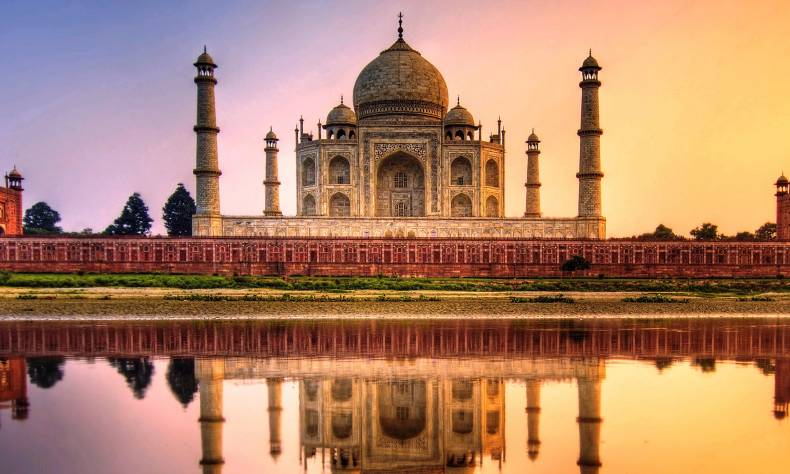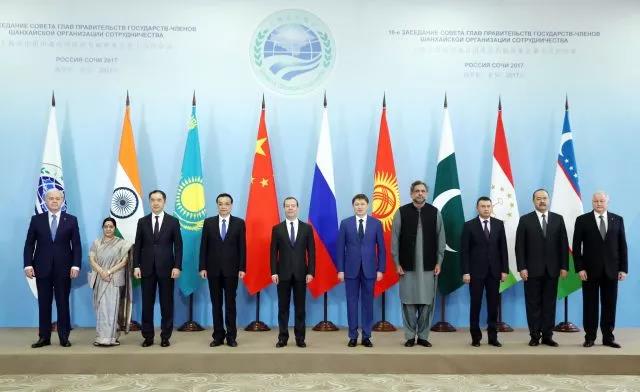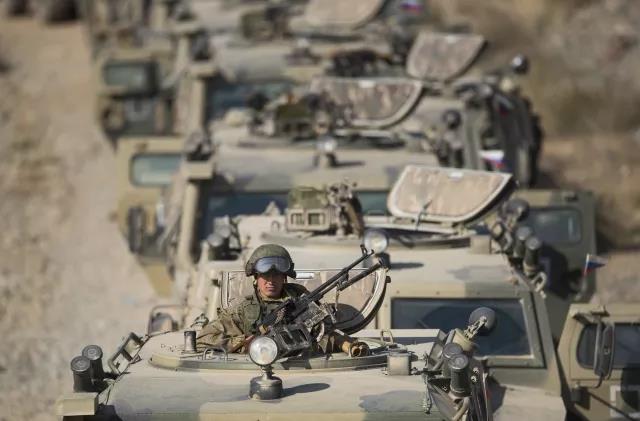
Shanghai Spirit and India’s Participation
India has benefited from Shanghai Spirit. India’s contributions have become integral to it.
The Shanghai Cooperation Organization (SCO) will hold a summit in June 9 as leaders are expected to exchange ideas on dealing with global issues and roll out cooperation measures for the bloc’s future when they gather in east China’s coastal city of Qingdao.
In late March, Professor Swaran Singh attended a forum in Beijing on the development of the Shanghai Cooperation Organization (SCO) in the new era. He was interviewed by China-India Dialogue after the forum and shared his views on the organization and India’s focus. This article is edited from this interview.
Energy and Security: India’s Interest
Since India’s independence in 1947, terrorism has remained a constant issue. Even today, Indian people, who represent 15% of the world population, face the threat of terrorism on a daily basis. If any bright side can be gleaned from this gloomy historical legacy, it is that India has gained rich experience combating terrorism. India has already enacted extensive national legislation on this issue, which could also be applicable to greater South Asia.
In 1987, the South Asian Association for Regional Cooperation was established with participation from every country in South Asia. It was the first organization to bring together every South Asian state to work on terrorism. Terrorism at that time was not a major issue and was widely regarded as a poor-country problem. Now, however, the problem has become universal. And since 1996, India has been seriously promoting and turning to the UN convention on countering terrorism. Wherever he visits, the Indian Prime Minister addresses the issue of terrorism as regional rather than domestic. Through joining the SCO, India can share its experience with other members.
Moreover, India emerged as a major consumer of energy resources in the early 21th century due to its rocketing economic growth rate the accompanying new demand for energy resources. Significantly, a large chunk of Indian populations, about a fourth, still lacks access to consistent daily electricity, even today. The Indian government is working hard to increase production of energy. With India’s contracts to introduce nuclear reactors from the United States and France in jeopardy, it needs to look for new partners. Shanghai Cooperation Organization is composed of several countries with energy surpluses. If India were to turn to China for conventional new power project equipment rather than nuclear, the SCO would become very important conduit for India to achieve the objectives of its national power agenda.
Shanghai Spirit Significance
Pan Guang, a famous Chinese scholar from the Shanghai Academy of Social Sciences, has done considerable work on the Shanghai Spirit. His writings trace the origin of the Shanghai Spirit to five principles of peaceful coexistence that China and India have both promoted since the 1950s.
Some feared that the addition of both India and Pakistan to the group would sour SCO negotiations. Such concerns can be dismissed if the Shanghai Spirit prevails. Partly thanks to the Shanghai Spirit, the participation of India and Pakistan has not disturbed negotiations of this group. Last year, member states India and China were involved in the Donglang (Doklam) standoff. Just as the tensions rose in June, the SCO summit was held in Astana, at which India was admitted as a full member. Moreover, that summit also produced something equally beautiful: broad consensus between China and India. An understanding between President Xi Jinping and Indian Prime Minister Narendra Modi pledged that they will not allow differences to escalate into disputes. And that idea was reinforced in meetings in Hamburg in July and then in Xiamen in September. As SCO works towards mutual benefits in dialogue, culture diversity and the promotion of shared development, it creates an atmosphere conducive to the consensus in Astana. India has benefited from Shanghai Spirit. India’s contributions have become integral to it.
The Shanghai Spirit also helps all big and small countries negotiate comfortably. China has repeatedly stressed that it does not seek hegemony. The SCO charter ensures that all decisions be made through consultation and consensus. Through the Shanghai Spirit, India can comfortably overcome the increasing asymmetry in China-India relations. Today, China’s GDP is 13.1 trillion dollars. In contrast, India’s is 2.6 trillion dollars, a difference which has increasingly strained the relationship. However, if the Shanghai Spirit guides the mechanisms and processes of negotiation, it will boost bilateral benefits of the Astana consensus as well as India’s confidence that it can stand eye-to-eye with powerful China. And it will keep India’s focus on building constructive relationships.
How will this development change things? To date, SCO has established over a dozen mechanisms which all promote the Spirit. The aforementioned comfort is being created at various levels among academics, business people, politicians, bureaucrats – all kinds of people. In my opinion, this path gradually leads towards creating a community. ASEAN, for example, has been working to create a community. Without even trying, the Shanghai Spirit is likely pushing SCO towards becoming a community. And it is similar to what India has been doing at home. India pays great attention to multiculturalism and appreciating and celebrating cultural diversity. The SCO mirrors India, as a multicultural behemoth that appreciates unity in diversity.
SCO is No NATO
For long time, SCO has often been cited in the West as an Eastern version of NATO, which positions it as a rival of the trans-Atlantic organization. From my perspective, it will not become like that group which is a relic of the Cold War. The world is no longer divided into two super powers. The international geopolitical situation is very different today. And our challenges are also different. The kinds of problems that frequently arise in heated discussions today are human trafficking, terrorism, climate change and pandemics – all issues that transcend national boundaries. Nowadays, no nation, however powerful it is, can resolve its challenges alone. Challenges are no longer confined within borders. In this kind of scenario, it would be foolish for the SCO to seek to become like NATO, because that is not what the modern age demands.
Source: China Pictorial
The article represents the author’s personal opinion which does not represent the China Focus’ stance.
 Facebook
Facebook
 Twitter
Twitter
 Linkedin
Linkedin
 Google +
Google +












